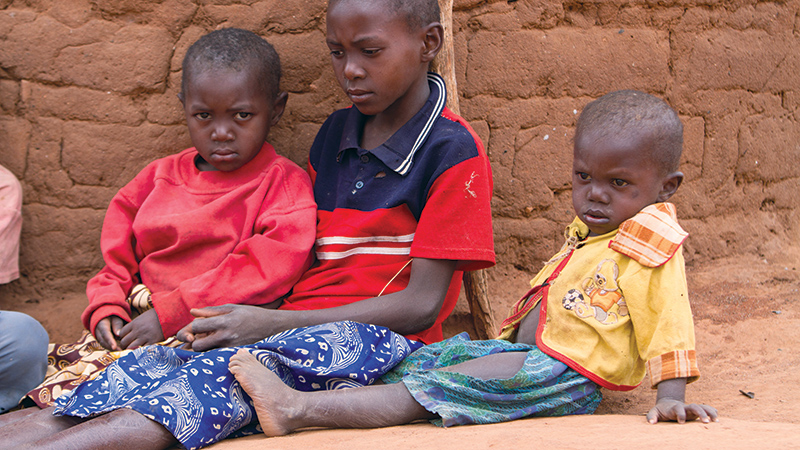ADRA Australia has launched the East Africa Famine Appeal in the wake of the region’s devastating humanitarian crisis.
More than 20 million people are facing starvation and famine. The scale is unprecedented, described as the single largest humanitarian crisis since the United Nations was founded in 1945.
Famine was declared in central Unity State in South Sudan in February while areas within several other countries, including Somalia, Nigeria, Kenya, Ethiopia and Yemen, are on the brink of famine. More than 600,000 children under five require urgent treatment for severe acute malnutrition. Without treatment, they will be at risk of death or permanent damage to wellbeing, undermining their capacity to learn and develop.
ADRA is providing urgent food aid, water and cash transfers, and education programs for more than 100,000 children, women and men. ADRA Australia is supporting a network-wide disaster response to scale up the distribution of lifesaving food aid to an additional 420,000 people.

Sabina is a farmer in north-eastern Kenya. When the family could no longer depend on produce from their farm, Sabina’s husband left to look for work. He set out in November 2016 and never returned. She has no knowledge of his whereabouts and he hasn’t communicated with her since. She is now caring for their seven children alone.
“See what drought has done to my farm,” says Sabina, “I used to grow sukuma wiki* here; now the place is dry and nothing can grow anymore.”
The rivers and water holes are empty.
“My children were in school but now they are not able to go to school as they have to help me burn charcoal for sale so that we can get something to eat.”
This isn’t a story of unforeseen need. East Africa didn’t suddenly fall into famine again. Time and effort has been invested in building the resilience of the agricultural sector to improve food security and reduce poverty across the region. But in recent times, this has been done with significantly less support from countries like Australia and the US, which have slashed aid programs to balance domestic budgets.
The Famine Early Warning Network has been monitoring agricultural production, food prices and rainfall across the region. Incremental increases in temperature, repeated climate shocks and insufficient recovery periods have eroded food and income reserves, and undermined coping mechanisms. After two consecutive seasons of poor rainfall, a strong El Niño effect in the Pacific Ocean led to severe drought conditions.

ADRA Australia senior programs manager for Africa, Darin Roberts, explains, “These trends make it very hard for farmers to plan farming activities as they are no longer able to determine when the rains will come to begin their planting.”
Challenging climatic conditions aren’t the only threat to food security in the Horn of Africa. Parts of South Sudan were declared famine-affected first because of widespread insecurity disrupting trade, blocking humanitarian access and causing millions to abandon their farms to flee the conflict. Ongoing violence in Yemen has severely restricted food access and Islamist terror group Boko Haram is contributing to significant displacement of people in Nigeria. As people leave their homes in search of land, water and work tensions arise as competition for scarce resources intensifies.
To donate, go to adra.org.au/famine or call 1800 242 372. For New Zealand, visit adra.org.nz/famine.
*A commonly grown green crop similar to kale.






